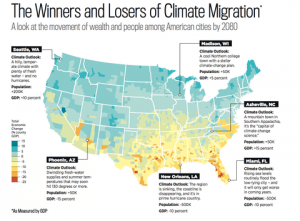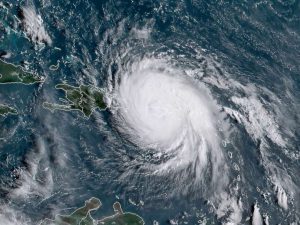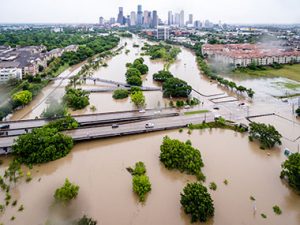
Much less of an exaggeration than it sounds:
The fate of Australia’s embattled Prime Minister Malcolm Turnbull is likely to be decided within hours as rivals seek enough signatures to force a vote on his leadership.
Amid a flurry of ministerial resignations Thursday, Turnbull said he would call a special meeting of the governing Liberal party at noon on Friday only if his main challenger — right-wing populist Peter Dutton — can gather enough signatures on a petition.
Just Monday, Turnbull abandoned a modest effort to reduce energy emissions under pressure from conservatives in his party. And yesterday, those same conservatives just missed toppling his government. Hmm:
Australia’s resistance to addressing climate change — by limiting emissions in particular — is well documented. Turnbull could yet be turned out of office as rivals rally support for another challenge as soon as Thursday. If that happens, he will be the third Australian prime minister in the past decade to lose the position over a climate dispute.
Despite the country’s reputation for progressiveness on gun control, health care and wages, its energy politics seem forever doomed to devolve into a circus. Experts point to many reasons, from partisanship to personality conflicts, but the root of the problem may be tied to the land.
…
“The Europeans think we’re crazy,” she added. “Who’s got more solar, who’s got more tidal power than us? It just goes to show the strength of that particular group.”The trend of hyper-partisanship has not helped. Just as climate and energy issues in the United States create a toxic divide, with many on the right opposing anything the left supports — including well-established science — any mention of emissions control tends to create an anaphylactic reaction among Australian conservatives.
The arguments differ. Some make a case for free markets, despite subsidies granted to fossil fuel companies, or they say action works only when all nations act. Others, like Turnbull’s opponents this time, emphasize local priorities such as reduced energy prices for consumers.
The Aristocrats!
Under Turnbull, a former investment banker and a moderate, the Australian government has increased its support for fossil fuel extraction projects, failed to meet goals set under the Paris climate agreement, and shied away from challenging the consumption status quo even as the Great Barrier Reef bleaches toward oblivion.
Darren Saunders, a cancer biologist in Australia, spoke for many in a popular tweet that said, “It’s incredibly hard to describe how utterly sad it feels to be a scientist and dad in a country being dictated to by a small group of science-denying clowns putting their own short-term political gain over the long-term public interest.”
Which of these underlying conditions don’t we share with the Aussies? Show your work.
Image: Coral bleaching at Heron Island in the Great Barrier Reef, via



 Imagine there’s a video game, where the player must decide which tools to use to dig themselves out a hole without acknowledging that holes exist OR that the player is trapped in one and hence needs the tools. The point of the game (beyond your apparent need to never face 30 contiguous seconds of not looking at your phone) is to let players experience what it feels like to be a member of the
Imagine there’s a video game, where the player must decide which tools to use to dig themselves out a hole without acknowledging that holes exist OR that the player is trapped in one and hence needs the tools. The point of the game (beyond your apparent need to never face 30 contiguous seconds of not looking at your phone) is to let players experience what it feels like to be a member of the 
 Include our brains. This report about Houston from last year outlines how unchecked development remains a priority in the famously un-zoned city, creating short-term economic gains for some while
Include our brains. This report about Houston from last year outlines how unchecked development remains a priority in the famously un-zoned city, creating short-term economic gains for some while 
 The stupidity of millions, millions of individually stupid decisions, has brought a spiteful revolution to its denouement. Or a screaming kid to its mall, whichever you prefer.
The stupidity of millions, millions of individually stupid decisions, has brought a spiteful revolution to its denouement. Or a screaming kid to its mall, whichever you prefer. Peter Singer’s 1975 book
Peter Singer’s 1975 book